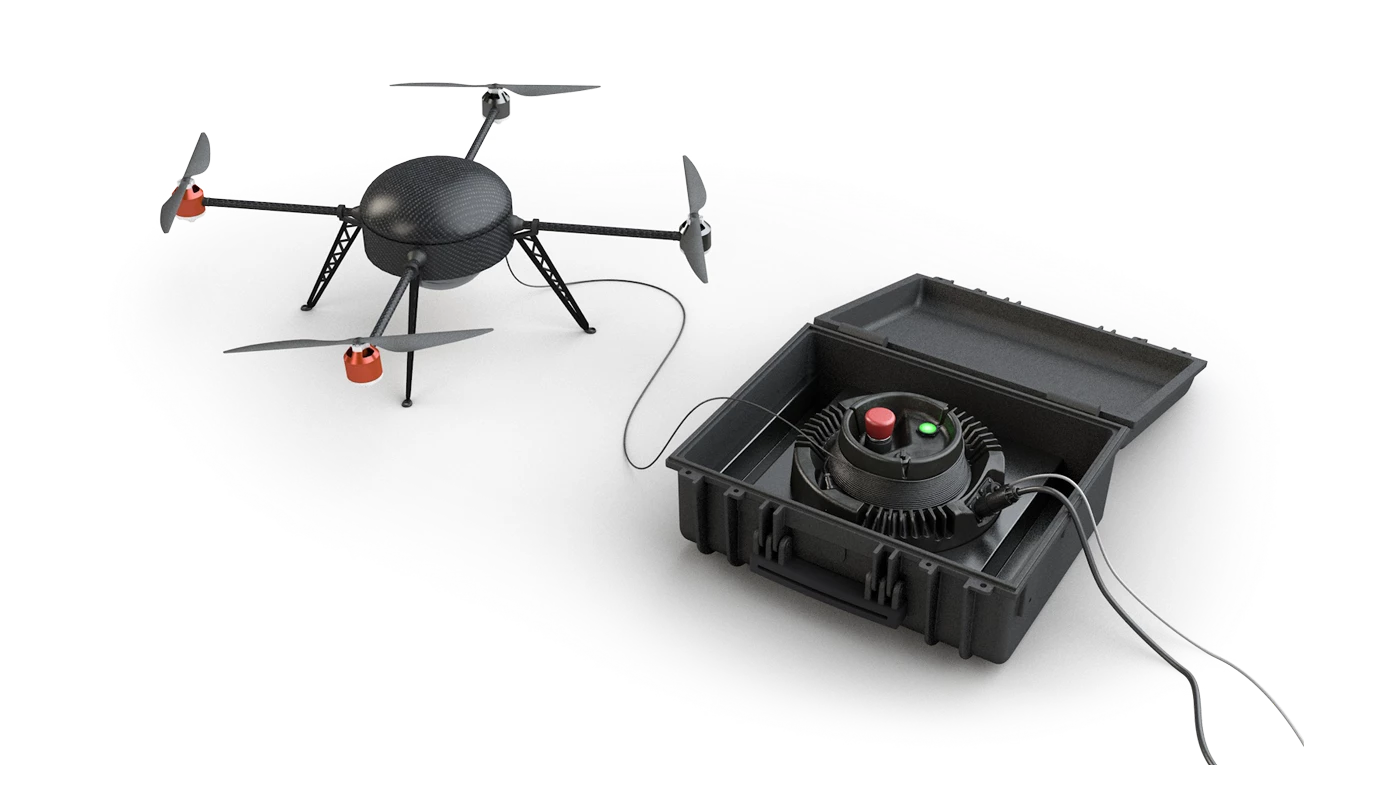Unmanned drones venturing into the vicinity of airports is something the authorities would much like to avoid. But French technology firm Elistair has found a way to make use of the UAV's strengths while maintaining a focus on safety by tethering the drones to the ground while they carry out inspections.
With the ability to roam far and wide, drones have opened up a huge amount of possibilities in areas like agriculture, military reconnaissance, wildlife conservation and autonomous deliveries. But there are some applications that simply don't require unmanned aerial vehicles to fly that far.
One example of this is ground troops in need of a sustained aerial perspective, kind of like a hovering watchtower. The US military has recently placed an order for drones designed to provide exactly that, and with a tether connecting them to the ground, they can receive enough power to potentially run for days at a time.
This is what Elistair is getting at with its two tethered ground stations for drones, the Safe-T and High-T. These hook up to multicopters to provide them with constant data transfer abilities and continuous power, effectively allowing for unlimited flight time and ongoing surveillance up to an altitude of 50 or 100 m (164 ft or 300 ft). It also reduces the chances of the battery failing and the drone crashing to the ground and, of course, keeps them from running amok and interfering with flights.

France has restricted airspace around airports, but its civil aviation authority recently approved three missions using drones tethered to the ground by Elistair. These sought to make use of drones' inspection capabilities, something we have seen put to use in surveying bridges to even inspecting airplanes themselves.
The tethered drones were used to inspect high walkways at Paris-Charles de Gaulle airport, and also in the calibration of air navigation instruments at Paris-Le Bourget airport. This involved a total of nine flights at varying altitudes with the drone integrated into the airspace and maintaining a direct link to the air traffic control tower.
Like in so many other sectors, drones hold the potential to carry out certain tasks at airports, like safety surveillance or inspections, much more efficiently – if not automate them entirely. It's easy to see why there are some reservations about letting them loose in airfields, and perhaps keeping them on a tight leash presents a more viable way forward.
Source: Elistair




